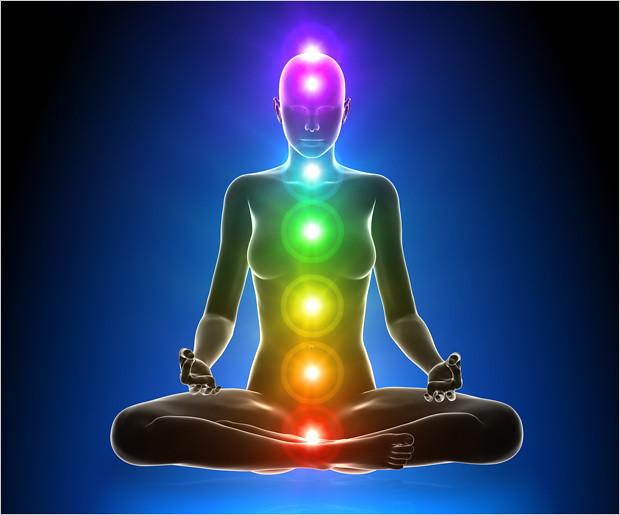In a world where distractions bombard us relentlessly, it’s no wonder that our minds sometimes feel like wild horses, racing in every direction without a care or focus. And for those grappling with Attention Deficit Hyperactivity Disorder (ADHD), this untamed mental landscape can often feel overwhelming, like a perpetual carnival ride that never stops spinning. But what if there was a way to tame the chaos, to gently rein in the wandering thoughts, and guide the mind towards a state of calm and clarity? Enter meditation, the ancient art of training the mind, which holds the promise of bringing focus to the unfocused and peace to the restless. Join us as we explore the intriguing intersection of meditation and ADHD, unraveling the potential benefits and unraveling the science behind this captivating relationship.
Meditation as a Therapeutic Tool for Individuals with ADHD
Meditation has long been revered for its ability to calm the mind, but recent research has shown that it can also be a powerful therapeutic tool for individuals with Attention Deficit Hyperactivity Disorder (ADHD). In fact, many experts believe that incorporating meditation into a comprehensive treatment plan can significantly improve the symptoms of ADHD and enhance overall well-being.
One of the key benefits of meditation for individuals with ADHD is its ability to increase focus and attention. By practicing mindfulness, individuals learn to anchor themselves in the present moment and let go of the distractions and racing thoughts that can often overwhelm those with ADHD. Through consistent meditation practice, individuals are better able to filter out irrelevant stimuli and direct their attention to the task at hand. This increased focus can lead to improved performance at work, school, and in daily activities.
In addition to improving focus, meditation also helps to reduce impulsivity and hyperactivity, two hallmark symptoms of ADHD. By cultivating a sense of inner calm and awareness, individuals are better able to regulate their emotions and impulses. This can result in fewer impulsive decisions and a greater ability to pause and think before acting. Furthermore, regular meditation has been shown to reduce stress and anxiety, which are often co-occurring conditions with ADHD. This reduction in stress can lead to a greater sense of overall well-being and improved quality of life for individuals with ADHD.
| Creates a sense of inner calm | Reduces stress and anxiety |
| Improves focus and attention | Enhances overall well-being |
| Reduces impulsivity and hyperactivity | |
| Increases ability to regulate emotions | |
Examining the Impact of Meditation on Improving Attention and Focus
Meditation has long been known for its ability to calm the mind and promote relaxation. However, recent studies have shown that it may also have significant benefits for individuals with attention deficit hyperactivity disorder (ADHD). Many people with ADHD struggle with maintaining focus and attention, making everyday tasks and responsibilities a challenge. However, by incorporating regular meditation practices into their routine, individuals with ADHD may be able to improve their ability to concentrate and manage their symptoms more effectively.
One of the key ways that meditation helps individuals with ADHD is by training the brain to stay focused on the present moment. ADHD is often characterized by a constant stream of racing thoughts and an inability to remain present. Meditation techniques, such as mindfulness meditation, teach individuals to redirect their attention back to the present moment whenever their mind starts to wander. By developing this skill, individuals with ADHD can strengthen their ability to sustain attention and minimize distractions.

Practical Techniques to Incorporate Meditation into ADHD Management
Living with ADHD can often feel like navigating the chaos of a swirling storm. The mind constantly jumping from one thought to another, distractions pulling attention away at every turn. In the midst of this storm, meditation can offer a ray of calmness, an anchor to ground the unfocused mind. By practicing specific techniques, individuals with ADHD can learn to harness their wandering thoughts and cultivate a sense of inner stillness.
1. Mindful Breathing: Begin by finding a comfortable position, whether sitting or lying down. Close your eyes and place your attention on your breath. Observe the sensation of your breath as it enters and leaves your body. If thoughts arise, simply acknowledge them and gently guide your focus back to the breath. This practice helps develop mental discipline and promotes relaxation.
2. Guided Visualization: Visualization exercises can be particularly beneficial for individuals with ADHD. Find a quiet space and use guided meditation recordings or apps to immerse yourself in a calming visual journey. Imagine yourself in a serene natural setting, picturing each detail vividly. Take deep breaths, filling your mind with the tranquility of the scene, temporarily freeing yourself from the distractions of everyday life.
3. Walking Meditation: For those who struggle with sitting still, walking meditation offers an alternative. Find a quiet outdoor area and take slow, deliberate steps, focusing on the sensory experiences of walking. Pay attention to the sensations in your feet as they touch the ground, the rhythm of your breath, and the sounds and smells around you. By anchoring attention to the present moment, walking meditation can help calm the restless mind.
| Technique | Benefits |
| Mindful Breathing | Promotes mental discipline and relaxation |
| Guided Visualization | Calms the mind by immersing in peaceful imagery |
| Walking Meditation | Anchors attention to the present moment and reduces restlessness |
Incorporating meditation into ADHD management can be a transformative practice. These techniques provide an opportunity to cultivate focus, reduce impulsivity, and enhance overall well-being. With regular practice and patience, individuals with ADHD can harness the power of meditation to find balance amidst the storm.

Guidelines for Using Meditation as Complementary Treatment for ADHD
Living with Attention-Deficit/Hyperactivity Disorder (ADHD) can feel like living in a fast-paced world where the mind constantly wanders and focus is a fleeting concept. However, an ancient practice like meditation might just offer the calm amidst the chaos. Complementary to traditional treatments, meditation has been gaining recognition as a valuable tool in managing the symptoms of ADHD. By training the mind to be present and reducing the internal chatter, meditation helps individuals with ADHD regain focus, improve impulse control, and enhance cognitive abilities.
When considering incorporating meditation into your ADHD treatment plan, it’s important to keep a few guidelines in mind. Firstly, finding the right type of meditation practice that suits your needs is crucial. Mindfulness meditation, with its emphasis on staying present, can be particularly beneficial for individuals with ADHD. Secondly, consistency is key. Aim to practice meditation for a few minutes every day, gradually increasing the duration over time. Allocating a specific time and place for your meditation practice can help create a routine. Lastly, be patient with yourself. Meditation is a skill that takes time and practice to develop, so it’s important to approach it with an open mind and without judgment or expectations.
Meditation Tips for ADHD:
- Choose a quiet and comfortable location for your meditation practice.
- Start with shorter meditation sessions and gradually increase the duration.
- Focus on your breath and use it as an anchor to bring your attention back whenever it drifts away.
- Experiment with guided meditations specifically designed for ADHD, which can provide additional structure and support.
- Consider incorporating gentle movements, such as yoga or tai chi, into your meditation routine to help release excess energy.
Meditation Resources for ADHD:
If you’re new to meditation or seeking further guidance, there are numerous resources available to assist you on your journey. Look for meditation apps, such as Headspace or Calm, that offer specific programs tailored to ADHD. These apps often provide guided meditations, timers, and progress tracking tools to help you stay motivated and make meditation a habit. Additionally, joining a meditation group or finding an ADHD support community can offer a supportive environment and opportunities for learning from others’ experiences.
| Resource | Description |
|---|---|
| ADHD Meditation YouTube Channels | Explore YouTube channels dedicated to meditation techniques for individuals with ADHD. |
| Online Meditation Courses | Enroll in online courses specifically designed to teach meditation skills for managing ADHD symptoms. |
| Books on Mindfulness and ADHD | Discover literature that delves into the intersection of mindfulness practices and ADHD management. |
Remember, meditation is not a cure for ADHD, but rather a complementary practice that can provide significant benefits. It’s always best to consult with a healthcare professional or therapist familiar with ADHD before incorporating meditation into your treatment plan. By incorporating meditation into your daily routine, you can unlock the power of a focused mind and embark on a journey of self-discovery and inner peace.
Insights and Conclusions
In a world that constantly demands our attention, finding focus can feel like an impossible task. But what if the answer lies within ourselves? Meditation, with its ancient wisdom, offers us an opportunity to quiet the chatter of our minds and cultivate a sense of calm amidst the chaos. This age-old practice has shown remarkable potential in helping individuals with Attention Deficit Hyperactivity Disorder (ADHD) navigate their inner worlds with greater ease.
Throughout this article, we have explored the fascinating intersection between meditation and ADHD, uncovering the transformative power it holds for those whose minds are prone to wander. By harnessing the practice of mindfulness, individuals with ADHD can tap into their innate ability to concentrate and enhance their overall well-being.
While medication and therapy remain vital tools in managing ADHD symptoms, meditation presents a unique avenue that complements traditional approaches. By training the mind to observe thoughts and emotions without judgment, individuals with ADHD can gradually attain a more controlled state of mind. This heightened awareness enables them to redirect their focus and enhance their ability to stay present.
Moreover, meditation offers an array of benefits beyond focus. Studies have shown that regular meditation practice can alleviate stress, anxiety, impulsivity, and even strengthen cognitive function. By engaging in a meditative journey, individuals with ADHD can gain a newfound sense of empowerment, becoming agents of their own mental well-being.
As we conclude our exploration of meditation and its profound impact on the unfocused mind, it is crucial to remember that each individual’s journey is unique. What works for one person may not work for another. Therefore, it is essential to approach this practice with an open mind, allowing yourself the space to explore and adapt techniques that resonate with your own experience.
So, whether you are someone with ADHD seeking to harmonize the symphony of thoughts within, or a curious observer looking to grasp the power of meditation, know that the path to focus and serenity does exist. It may take time, patience, and experimentation to find the right techniques for you, but the rewards are immeasurable.
Let us embark on this transformative journey, unlocking the untapped potential within our unfocused minds through the practice of meditation. May this ancient art guide us towards a place of clarity, gentleness, and heightened awareness. As we learn to navigate the vast landscape of our thoughts, let us remind ourselves that even in the midst of distractions, true focus lies within our grasp.


